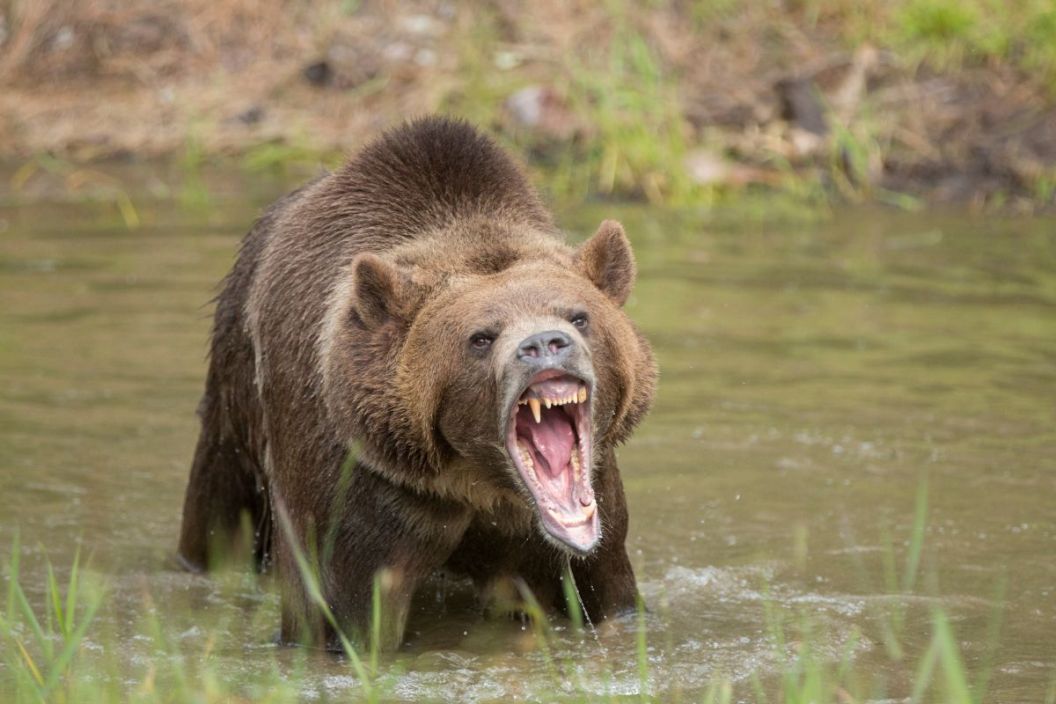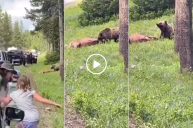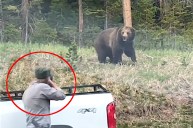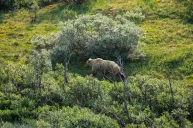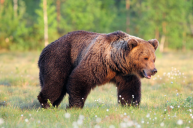Nature is powerful and exciting for the same reasons that it's also frightening. Adventure enthusiasts know that seeing wildlife can be an incredible experience as long as they follow all the rules. But sometimes, avoiding dangerous animals can be out of your control. Grizzly bears are terrifyingly magnificent creatures that usually avoid human interaction unless provoked. However, habituated or "food-conditioned" bears can display aggressive, non-defensive, and unprovoked behavior towards people. According to the National Park Service, they're considered highly threatening to human safety and removed from the wild. And this story is an example of why that happens.
On July 6, 2021, 65-year-old Leah Lokan, a champion cyclist, was brutally killed by a grizzly bear determined to be food-conditioned. The woman was on a multi-day bicycle trip along the Great Divide Mountain Bike Route with her sister and their friend when they stopped in Ovando, Montana, a popular place for cyclists to rest. The Interagency Grizzly Bear Committee's incident report explained that Leah decided to camp behind a museum next to a couple from Texas, Kim and Joe Cole, whom she had met along the way.
Around 3:00 a.m. on the day she died, Leah was awoken by a bear exploring their campground, and she cried out a warning that woke up the Coles. Joe and Kim grabbed their bear spray and began making noise, scaring the bear away. According to the IGBC report, Leah had told the couple that "the bear huffed at my head," and she moved her packaged snack foods and a large bag of lentils from her tent into a building about 25 to 30 feet away. She then brought her bear spray can into the tent with her, refusing to stay in a hotel where her sister and friend were staying, despite the Coles suggesting the option.
About an hour later, Joe was awoken by what sounded like a bear attack. He started frantically yelling "bear" at the top of his lungs while crawling out of his tent and deploying his bear spray as quickly as possible. Kim followed suit while blowing her whistle. They came out of their tent just in time to see the dark shadow of the 417-pound male grizzly "pouncing up and down" on Leah and her tent. Joe continued using his bear spray until the bear made eye contact with him and left. Although the back of the tent was still standing, the couple could see that something had dragged Leah's body and the rest of the tent about eight to 10 feet away from where she initially camped. Her body was halfway out of her tent and sleeping bag, "showing no signs of life."
The autopsy found that the grizzly bear broke her neck and severed her spine, causing instant death. Montana Fish Wildlife & Parks Bear Management Team responded by searching for the bear to put it down. Three days later, the bear was shot while raiding a chicken coop near Ovando, and DNA tests confirmed it was the same bear that fatally mauled Leah.
The IGBC report stated that although not all habituated bears exhibit predatory behavior, a predatory response was triggered in this one, and "perhaps due to a simple movement made by the sleeping victim, or a certain sound made by the victim, the bear reacted and ended up taking the life of Ms. Lokan."
The Problem With "Food-Conditioned Bears"
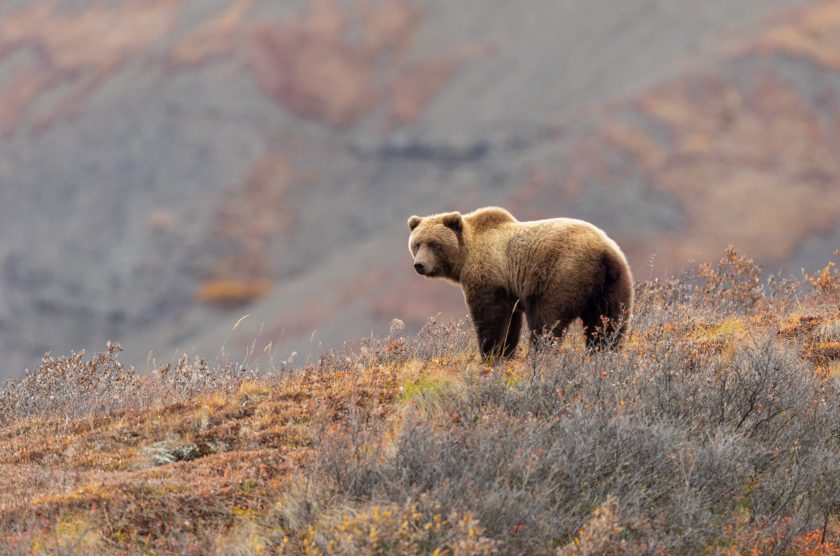
twildlife via Getty Images
While "habituated" and "food-conditioned" are often used interchangeably, they have different definitions. Habituated animals are creatures who become unafraid of human interaction because they're so used to being near people. So while bears typically stay away from humans out of fear, habituated bears tend to ignore people nearby.
Food-conditioned animals have learned that they'll get food after approaching humans and food containers or performing specific actions. So food-conditioned bears are especially dangerous because they've been known to attack humans for food they can smell from far away with their keen olfactory senses. And once they taste food intended for humans, it's difficult for them to return to their natural diet entirely.
The grizzly bear that attacked Leah was considered both habituated and food-conditioned because it was seemingly unfazed by human presence and also developed a taste for human food.
We have a few tips on what to do if you encounter a grizzly or black bear, but you should always be prepared and educated on what to do if you experience any wildlife. Wildlife officials explained that Leah should've spent the night in the hotel after her first encounter with the bear. They urged that if you find yourself in a similar situation, to seek shelter in a building or vehicle for the night to be safe. If you're planning to go to any wilderness area, big or small, make sure you know how to store your food and carry bear spray properly.
